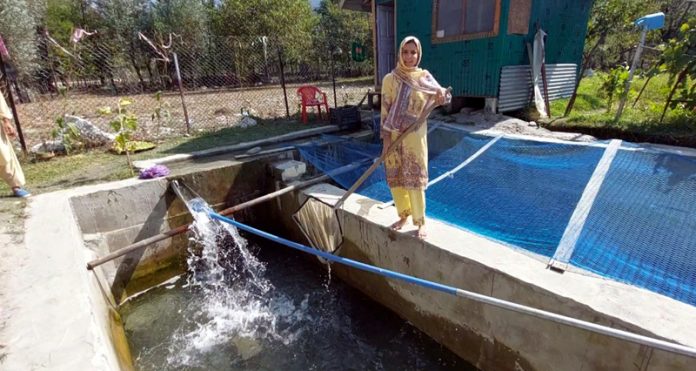Excelsior Correspondent
SRINAGAR, Oct 10: In Central Kashmir’s Ganderbal district, an exciting development is underway in fish farming, with over 30% of the district’s fish farms now owned and operated by determined young women, securing their livelihoods and empowering the community.
Officials from the Department of Fisheries have highlighted the proactive role of these female entrepreneurs in utilising various government schemes, such as the Pradhan Mantri Matsya Sampadna Yojna (PMMSY) and, more recently, a comprehensive agricultural development plan. Under these programmes, women beneficiaries receive a 60% subsidy on the total project cost. “We are enticing and motivating these women with such schemes, empowering them to embrace fish culture and attain economic self-sufficiency,” an official said.
One woman entrepreneur, who was previously a software engineer, shared her success story. She has been operating her fish farm for the past two years, having received substantial government subsidies. “We can support our families with this business. The government’s support aided us in constructing our business. There is no shame in earning an honest livelihood; it is far better than resorting to illicit activities like drug abuse,” she said.
She believes that fish farming is a lucrative venture, and she encourages the youth, particularly those struggling with drug addiction, to explore alternative avenues and start their own businesses.
Another entrepreneur, Kulasuma Majeed, discovered these schemes through social media. She applied for a fish farm and easily secured the necessary resources to establish it. “They provided the funding, seeds, training, and every form of assistance required for me to get started,” she said.
A customer, Javeed Ahmad, shared his perspective on the Margund fish farm. He frequents the farm, enjoying fish twice a week, considering it a healthier alternative to meat and other foods. “These farms provide high-quality fish, and I believe that in the future, fish may replace meat. I see this as an opportunity for sustainable livelihood and a means to support others in our community,” he said.


